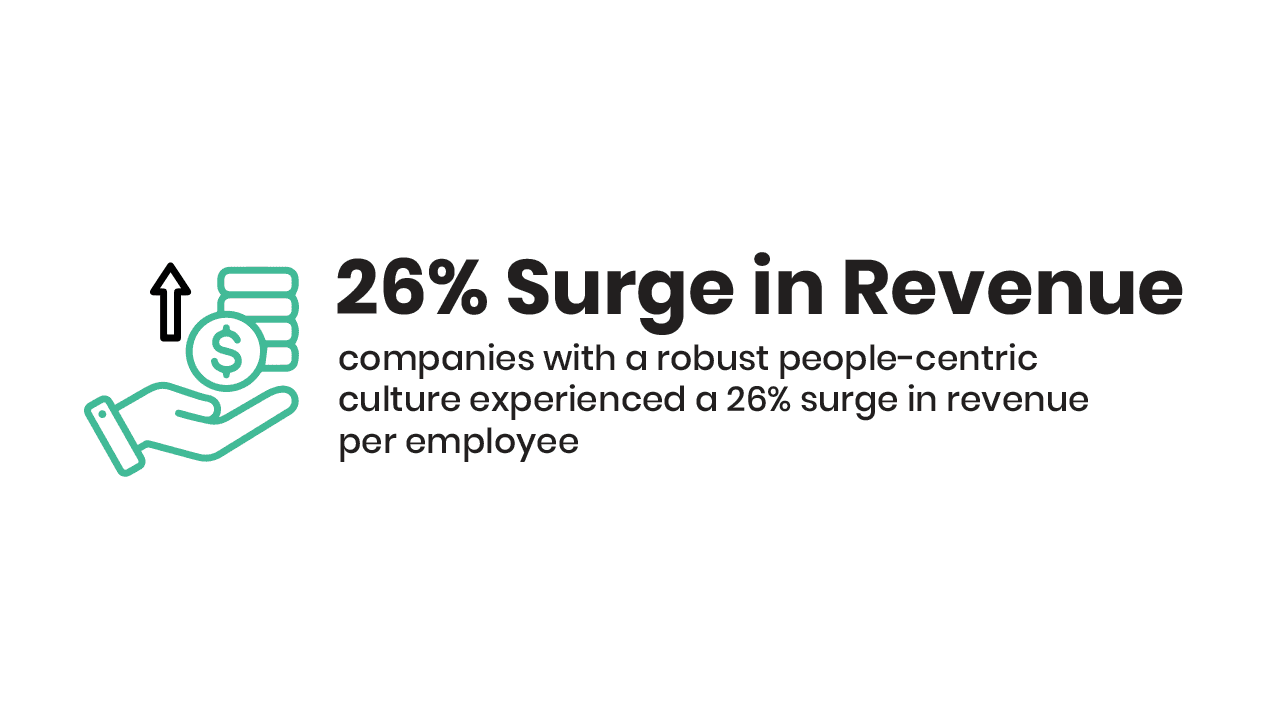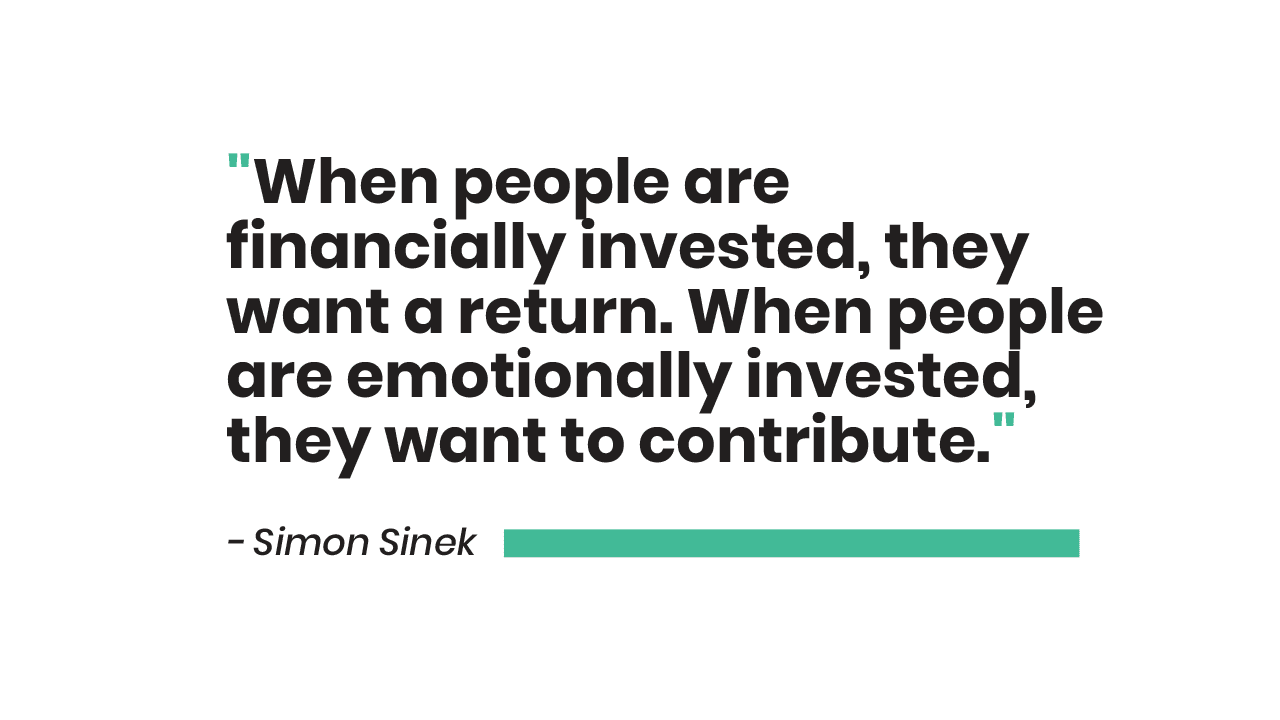The maxim “Culture eats strategy for breakfast,” coined by the esteemed management consultant Peter Drucker nearly two decades ago, holds truer than ever in today’s rapidly evolving business landscape. Amidst the flux of strategies, products, and technologies, one unwavering constant persists: the lifeblood of any organisation lies within its workforce. While these elements certainly contribute to success, the combined potential of a company’s employees propels it forward.
A survey by global leadership advisory firm Heidrick & Struggles in 2021 revealed that 82% of 500 CEOs recognised organisational culture as a paramount priority. In this crucial moment, it is imperative to reevaluate corporate culture, transcend traditional norms and embrace a paradigm shift that unlocks the full spectrum of employee potential.
This article delves into the core of this transformation, scrutinising how a people-centric approach can revolutionise corporate culture, catalyse innovation and employee retention, and fuel sustained growth.
The Constraints of Traditional Corporate Culture
Historically, organisations have predominantly adhered to a hierarchical structure characterised by a top-down decision-making approach. While this model has demonstrated efficacy, it often fails to tap into the latent reservoirs of creativity and innovation within the workforce. In addition, conventional corporate cultures have unwittingly stifled individuality, discouraged risk-taking, and nurtured a culture of complacency—qualities opposed to thriving in the dynamic landscape of modern business.
In-depth research conducted by Erdogan and Liden in their seminal work, “The Impact of Perceived Organisational Support on the Relationship between Boundary Spanner Role Stress and Work Outcomes” (Journal of Applied Psychology, 2006), illuminates that fostering an environment where employees feel empowered to express their unique perspectives leads to heightened engagement in creative problem-solving and bolsters the generation of innovative solutions. This catalyses organisational growth and enhances adaptability and competitiveness in today’s rapidly evolving business climate.
The Paradigm Shift: A People-Centric Approach
In recent years, organisations have undergone a discernible transformation in their operational approach, embracing what is commonly referred to as the “people-centric” paradigm. This represents a significant shift in mindset, prioritising employees’ well-being, development, and satisfaction as central focal points of organisational success. According to a 2016 study published in the esteemed Harvard Business Review, companies with a robust people-centric culture experienced a 26% surge in revenue per employee. Furthermore, as indicated by a recent collaborative study by IBM and Workhuman on “The Financial Impact of a Positive Employee Experience,” organisations ranking in the top 25% for employee experience reported a twofold increase in return on sales.
A people-centric corporate culture situates employees at the organisation’s core, acknowledging their diverse backgrounds, perspectives, and talents as invaluable reservoirs that catalyse innovation and drive progress. This methodology necessitates a thorough reevaluation of leadership styles, a reimagining of workplace dynamics, and a fundamental redefinition of metrics for success. It acknowledges that their multifaceted experiences, distinct viewpoints, and diverse talents are indispensable assets that foster creativity and propel sustainable growth.
Cultivating Purpose: The Shift Towards Purpose-Driven Workforce.
In the dynamic and ever-evolving landscape of contemporary business, the lure of financial incentives alone no longer holds the same sway over top-tier talent. Today’s workforce seeks a deeper connection, a resonance of purpose intricately woven into the fabric of their organisational identity.
In previous eras, competitive salaries and generous bonuses were often the primary drivers in attracting and retaining top talent. However, as the modern workforce becomes increasingly discerning, there is a palpable shift in what employees prioritise. While monetary compensation remains crucial, it is no longer the sole factor that defines an enticing employment proposition.
In an age where personal and professional lives intertwine more than ever, individuals yearn for work beyond a paycheck. They seek a sense of purpose, a connection to a greater mission that transcends profit margins. Organisations that recognise and actively cultivate this intrinsic desire for purpose are poised to attract exceptional talent and inspire unparalleled dedication and loyalty.
Empowering Leadership: From Command to Cultivate
Numerous works in management and leadership literature emphasise the transition from traditional authoritative leadership styles towards ones that foster empowerment and growth. Notable figures such as John Kotter and Gary Hamel advocate for more adaptable and collaborative approaches to leadership.
Leadership plays a pivotal role in shaping an organisation’s culture. Shifting from a command-and-control style to one that encourages empowerment and growth is crucial. In this evolved paradigm, leaders assume the roles of mentors and facilitators, offering guidance and resources while enabling employees to take charge of their responsibilities. This transition fosters a sense of responsibility and nurtures an environment where experimentation is encouraged rather than penalised.
When individuals perceive their contributions as valuable and their voices as influential, they become more deeply invested in the company’s success, leading to heightened engagement and commitment. Additionally, research in organisational behaviour and leadership, including studies by Richard Hackman and Greg Oldham, suggests that equipping employees with the necessary resources and autonomy can significantly boost motivation, job satisfaction, and overall performance.
Collaborative Spaces: Fostering a Culture of Connection
The physical environment of a workplace serves as the canvas upon which the tapestry of corporate ethos is woven. Empirical studies, such as Bernstein et al.’s seminal work “The Impact of the ‘Open’ Workspace on Human Collaboration”, published in the esteemed Philosophical Transactions of the Royal Society B in 2018, illuminate the profound influence of workspace design on human interaction and collaboration.
As illuminated by Bernstein et al.’s research, open workspaces emerge as catalysts for heightened collaboration and knowledge-sharing among team members. These spaces transcend the traditional cubicles and closed offices, offering a dynamic landscape that encourages interaction and exchange of ideas. Essentially, they foster an environment that values and nurtures interpersonal connections, facilitating candid communication and a more profound sense of camaraderie among employees.
One of the core principles of this environment lies in deliberately dismantling barriers. Gone are the rigid boundaries between departments, hierarchies, and titles. Instead, fluidity reigns, allowing for the seamless flow of ideas and information across the organisational spectrum. This deliberate integration cultivates a milieu of cross-functional collaboration, where individuals from various domains converge, pooling their collective expertise to tackle challenges from many perspectives.
Within this harmonious ecosystem, knowledge becomes a currency that circulates freely, unimpeded by silos or bureaucratic constraints. Ideas, concepts, and insights traverse the organisational landscape, finding fertile ground in the minds of eager collaborators. This dynamic interchange of perspectives enriches the collective knowledge pool and acts as the crucible for innovation.
The diverse tapestry of minds that converge in this open, collaborative space brings forth a symphony of creativity. Unique viewpoints and experiences merge, forming a symphony of innovation. This symphony, in turn, becomes the driving force behind the organisation’s ability to adapt, evolve, and thrive in an ever-changing landscape.
Holistic Growth: Nurturing the Individual
Research in positive psychology, exemplified by the pioneering work of Martin Seligman, underscores the significance of comprehensive well-being, encompassing positive emotions, engagement, relationships, meaning, and accomplishment, often referred to as PERMA. This paradigm shift within psychology has profoundly influenced various disciplines, from mental health to organisational advancement.
Positive psychology places a premium on nurturing individuals’ strengths and virtues to elevate their overall sense of well-being and life contentment. It specialises in fostering positive emotions such as joy, gratitude, and contentment, pivotal in bolstering mental well-being and fortitude.
Conventional corporate cultures frequently emphasise professional development in isolation. However, a human-centred approach acknowledges that personal and professional advancement are intrinsically linked. Organisations that facilitate avenues for comprehensive development—encompassing mental, emotional, and physical well-being—cultivate an environment conducive to individual flourishing. This may involve implementing wellness initiatives, accommodating flexible work arrangements, and providing opportunities for skill diversification. When employees feel supported in their overall well-being, they are more inclined to be productive, engaged, and devoted to the organisation’s prosperity.
Measuring Success: Beyond Traditional Metrics
Shifting to a people-centric corporate culture also entails redefining how success is measured. While financial metrics remain essential, they are not the sole indicators of a company’s prosperity. Employee satisfaction, retention rates, and the ability to attract top talent are equally crucial. A culture that values and invests in its people will naturally yield positive outcomes in innovation, customer satisfaction, and overall growth. Therefore, a comprehensive set of metrics should be developed to assess the holistic health of the organisation.
Conclusion
As the business landscape evolves at an unprecedented pace, the transformation of corporate culture becomes imperative. Embracing a people-centric paradigm shift is not merely a trend; it’s a strategic move that unlocks the full potential of a company’s workforce. By nurturing empowerment, collaboration, purpose, and holistic growth, organisations can create an environment where innovation thrives, employees flourish, and sustained success becomes a reality. The journey toward this new corporate culture requires commitment, adaptability, and a deep understanding that people are the company’s most valuable assets. As we navigate this era of change, one truth remains unwavering: a people-centric approach is a compass that guides companies toward a future where human potential knows no bounds.
Written by:
Oluwashola Achara
Learning Experience Designer


